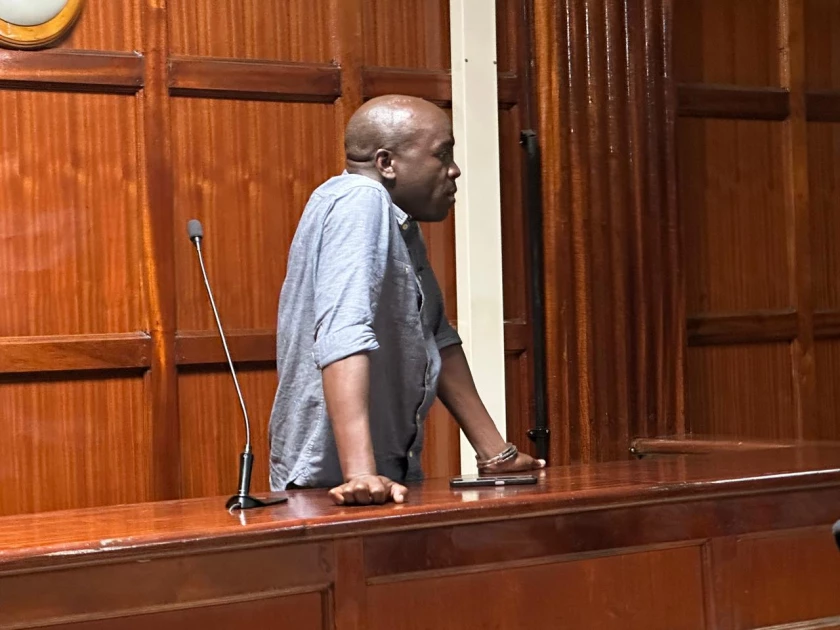The vibrant nightlife of Nairobi often promises unforgettable experiences, but for one city resident, a night of revelry culminated in an unexpected outcome: a two-month prison sentence. This case, tried at the Milimani Law Courts, has sent ripples through Nairobi’s social scene, serving as a stark warning about the serious legal consequences of unpaid bills.
- The Sequence of Events: A Night Out Turns Sour
- The Legal Framework: Understanding “False Pretense” in Service Contexts
- Broader Implications: A Society Increasingly Intolerant of Financial Default
- Practical Lessons for Nairobi’s Consumers
- The Ripple Effects of a Criminal Record
- A Wake-Up Call for Nairobi’s Revelers
The Sequence of Events: A Night Out Turns Sour
The evening began like countless others across the city—a man enjoying food and drinks at a local establishment, accumulating a bill of Ksh 13,500. When the time arrived to settle the account, the patron found himself unable to pay.
What might have been resolved through negotiation or a payment plan instead escalated dramatically. The establishment pursued legal action, resulting in charges of “obtaining credit by false pretense” under the Kenyan Penal Code.
In a court proceeding that underscored the judiciary’s low tolerance for such offenses, the accused pleaded guilty. The magistrate’s verdict was unequivocal: two months imprisonment, transforming a night of leisure into a life-altering legal lesson.
The Legal Framework: Understanding “False Pretense” in Service Contexts
This case illuminates a frequently misunderstood aspect of Kenyan law. The charge of “obtaining credit by false pretense” applies when an individual knowingly acquires goods or services without the means or intention to pay. By consuming the offerings, the patron implicitly entered a contractual agreement, and the failure to honor this agreement constituted a criminal offense rather than a simple civil matter.
Legal experts note that such firm sentencing reflects the courts’ growing commitment to protecting business interests and maintaining commercial integrity in Nairobi’s bustling economy.
Broader Implications: A Society Increasingly Intolerant of Financial Default
This incident resonates with wider patterns emerging across Kenya. Recent government initiatives have demonstrated a hardening stance toward financial irresponsibility:
-
Hustler Fund Consequences: Defaulters face exclusion from NYOTA grants and potential blacklisting from formal financial institutions
-
Credit Information Sharing: Banks and SACCOs increasingly consider alternative data, including utility payments and now potentially commercial transactions, in risk assessments
-
Judicial Precedent: This case establishes that even relatively small consumer debts can result in criminal penalties
Practical Lessons for Nairobi’s Consumers
-
Budget Before You Indulge: Always ensure you have sufficient funds before ordering food and drinks
-
Communicate Proactively: If unable to pay, immediately discuss alternative arrangements with management
-
Understand the Stakes: What appears to be a simple debt can carry criminal consequences under Kenyan law
-
Digital Solutions: Consider using mobile payment options that provide real-time balance updates to avoid overspending
The Ripple Effects of a Criminal Record
Beyond the two-month sentence, the long-term consequences may prove more damaging. A criminal record can:
-
Limit employment opportunities, particularly in sectors requiring integrity clearance
-
Complicate future loan and credit applications
-
Restrict international travel possibilities
-
Damage personal and professional relationships
A Wake-Up Call for Nairobi’s Revelers
This case transcends the story of one individual’s unfortunate evening. It represents a broader shift in how Kenyan society addresses financial responsibility. As the country continues to develop its formal economic structures, the tolerance for casual financial irresponsibility appears to be diminishing rapidly.
The message from the judiciary, financial institutions, and now hospitality establishments is clear: financial commitments, regardless of scale, must be honored. The true cost of a night out should always be measured not just in shillings, but in the potential consequences of failing to settle what you owe.
For Nairobi’s residents, this serves as a crucial reminder that in today’s Kenya, financial responsibility isn’t just good practice—it’s a legal imperative with potentially life-altering consequences for those who disregard it.










